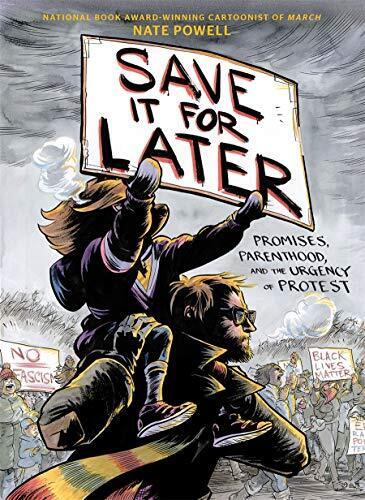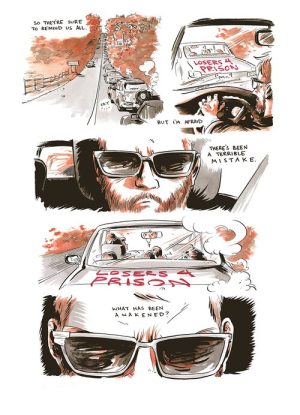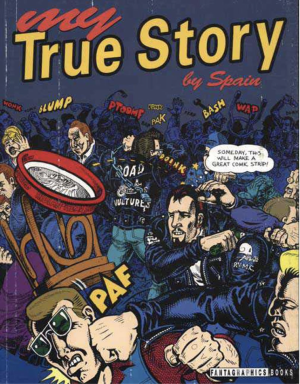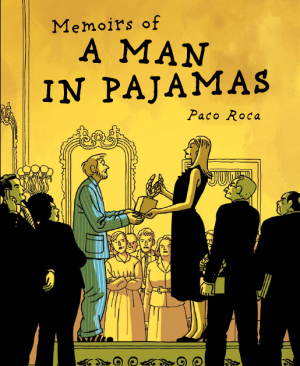Review by Frank Plowright
It’s not been an intentional process, but the refusal of politicians to attempt to understand people who disagree with their views, let alone consider concessions, has led in the USA to political polarisation. In 2016 Nate Powell was working on bringing the 20th century struggles of Senator John Lewis to life as a graphic novel in March, while the political pendulum was swinging increasingly toward the entrenchment of self-interest. For a social activist like Powell it was profoundly depressing. It’s surely an unintended irony that his personal outpouring of anger and grief is titled after one the cheeriest pop songs of the 1980s, although here it refers to a constantly repeated instruction during the early uncertain days of the covid epidemic.
Powell provides an individualised consideration of the USA between 2010 and 2020, with a specific connection to parenting. As he agonises over the direction his nation takes, he’s raising two young children, the oldest of which is beginning to respond to the greater world. Powell can supply some ethical statements, but there’s also a self-awareness about individuality. He cleverly segues between his daughter dressing up and cosplayers at comic events, friends of his supplying a lightbulb moment.
Save It For Later is extremely engaging as Powell distilling a lifetime of certainties into an era when people reject them in massive numbers. It’s nuanced and observant, and while surely preaching to the choir his analysis is nevertheless informative. Dissecting the symbolism associated with toxic masculinity is a standout among a scattershot approach to what ails the USA, with Powell’s loose, expressionistic art ideally suited to a subjective form of reportage leaping from one emotionally charged topic to the next.
Powell does have contradictory blindspots. Leaving aside issues of violence and actions prompted by widespread lies, is occupying the local courthouse to protest greatly different in outlook from occupying Washington’s Capitol building? In both cases people doing so believed they were addressing unfairness. Comments in passing are judgemental about his parents and grandparents, seemingly unaware that elements of his own experience he’s never questioned will be seen as passive acceptance in fifty years, although the inevitability of falling out of touch is later acknowledged.
These, though, are brief anomalies in what’s a thoughtful expression of fear in the face of ignorance. Just as there’s no understanding of how people stop listening after being told they’re wrong, on the other side of the fence the question of who they’ll come for next is never considered. The final chapter is the most depressing, as Powell notes his children’s schools have practice drills preparing for the possibility of an armed maniac. Is there meaningful discussion in the USA of whether the some rules and amendments on which the country was founded are no longer fit for purpose? Globally, the best of Greek and Roman societies have filtered through to the present day, but so much has been discarded as irrelevant. From the outside, some proclamations designed to promote fairness now instead actively encourage bullying and slaughter.
All comes to a close with a conversation between Powell and Derf Backderf, author of the politically charged Kent State, an almost forgotten atrocity. It’s as enlightening as the remainder as a cry from a thoughtful and considerate person.





